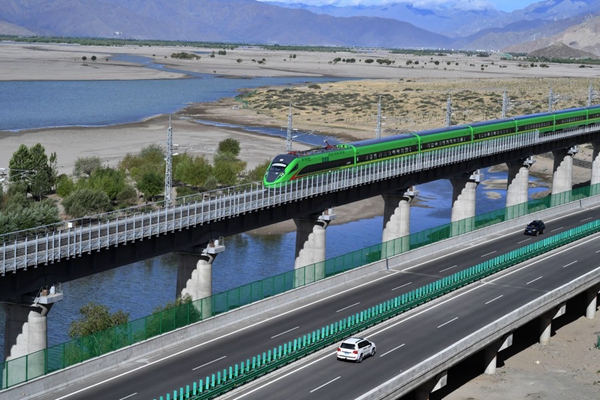China sharpens legal 'weapons' to fight noise pollution
 0 Comment(s)
0 Comment(s) Print
Print E-mail Xinhua, August 20, 2021
E-mail Xinhua, August 20, 2021

To address the issue of noise pollution, China's top legislature has moved to deliberate a draft revision to the law on the prevention and control of noise pollution.
The draft revision was presented to the legislators for deliberation earlier this week at the ongoing session of the Standing Committee of the National People's Congress.
The draft expands the application scope of the law, stipulating new types of noise pollution, such as urban rail-bound transport noise, which was not a question as serious when the law was promulgated in 1997 as it is now in some cities.
"Signing the prevention and control of urban rail transport noise into law will propel local governments to focus more on this particular aspect in urban rail transport constructions and better utilize anti-noise pollution techniques to address the issue," said Sui Fusheng, a researcher with the Institute of Acoustics under the Chinese Academy of Sciences.
With regard to noise polluters of public concern, including popular dancing activities in public venues and construction activities at nighttime, the draft revision also prescribes clear regulations and penalties for such violations.
"The draft revision clearly defines the responsible departments and punitive measures to target noise pollution generated from public activities in places such as public squares," said Ma Jun, director of the Institute of Public and Environmental Affairs.
Citing the penalties for construction sites that produce noise pollution at nighttime, Wang Canfa, a professor at China University of Political Science and Law, said ramping up the extent of penalties will pressure noise polluters to be more aware of their impacts on the surrounding environment.
As one of the most effective means to curb this pollution at its source, noise prevention and control through planning including road traffic and residential zones has also been written into the draft revision as part of a newly-added chapter.
"Noise pollution is closely related to planning. Scientific planning can help reduce it to a great extent," Wang said, adding that urban planning should be done with the foresight of reducing noise pollution.






Go to Forum >>0 Comment(s)